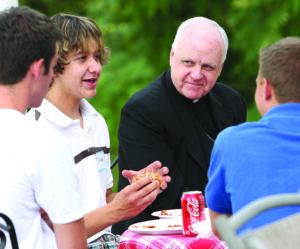Long before he was the 15th archbishop of Baltimore, Cardinal Edwin F. O’Brien took a wrong turn on a trip from New York to the nation’s capital.
Lost in a blighted section of inner-city Baltimore, the future prince of the church became increasingly frustrated as he unsuccessfully searched for signs directing him back to the highway.
“Somehow I got off I-95 and wound up in a very desperate situation,” Cardinal O’Brien told the Catholic Review. “I couldn’t find my way out. I said, ‘I never want to come back here again.’ ”
Nearly a decade later, talking with local media at the Catholic Center in Baltimore Jan. 25, Cardinal O’Brien had very different emotions as he prepared to leave the archdiocese he led for more than four years.
The New York native had just returned from Rome after Pope Benedict XVI named him a cardinal Jan. 6. He recalled his excitement at hearing the pope read the names of 22 new cardinals – with his being the eighth on the list. Cardinal O’Brien then choked back emotion as his thoughts returned to the nation’s first diocese, the “Premier See.”
“I just wish I could have been here (in Baltimore),” he said, calling the people of the archdiocese his family.
Titles are “very important in many respects,” Cardinal O’Brien told the media, “but we know beyond titles goes the work of the church. I’m so pleased that I could share this (honor) while I’m still here serving the church in Baltimore. I’m grateful to share the joy with you.”
As Cardinal O’Brien takes on new duties as grand master of the Equestrian Order of the Holy Sepulcher of Jerusalem, he looks back at his years in Baltimore as some of the most challenging and rewarding of his priesthood. Although he will live in Rome and travel the world in support of Christians in the Holy Land, the cardinal will remain a Baltimore citizen and retain the title of “archbishop emeritus” of the Baltimore archdiocese.
Cardinal O’Brien leaves an indelible mark on his adopted home – reconfiguring the school system, starting a parish-planning process, speaking out strongly in defense of life and new immigrants, supporting traditional marriage and naming key leaders to archdiocesan posts. He did what he thought was best for building up the church and promoting Gospel values, he said. Sometimes, that required difficult decisions he wasn’t afraid to make.
Fighting injustice
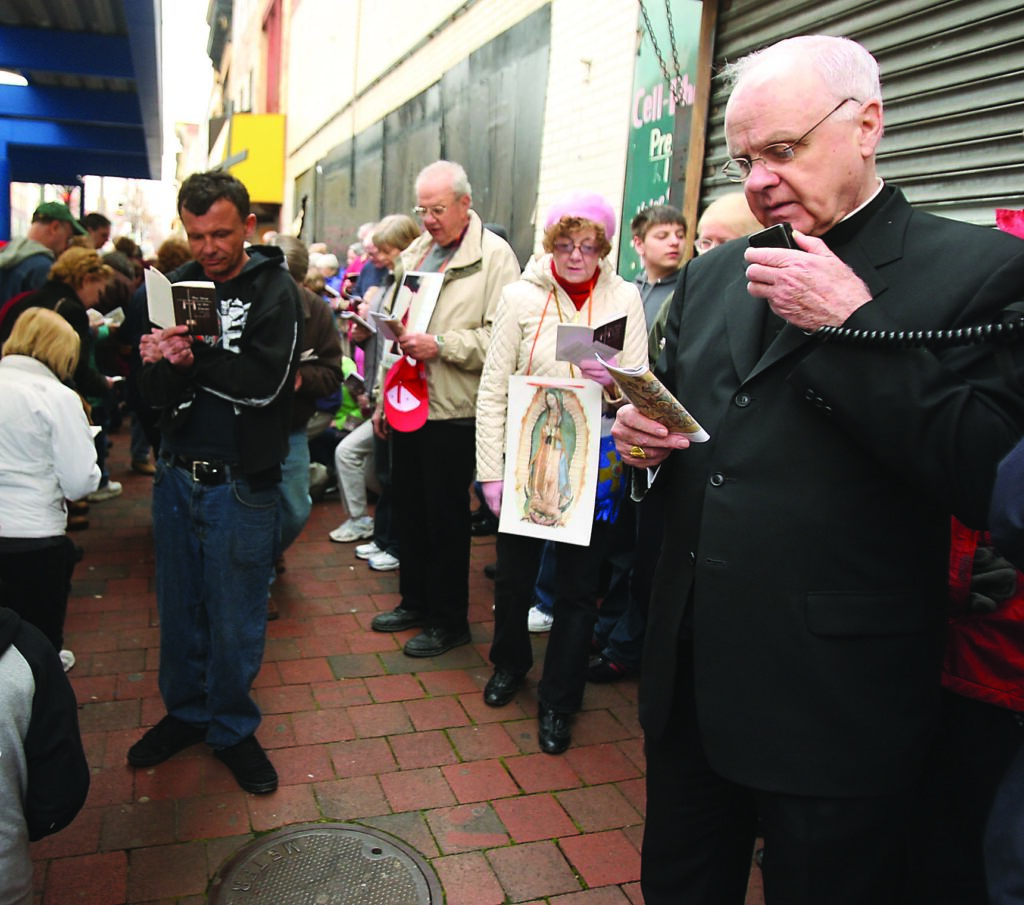
Throughout his Charm City tenure, Cardinal O’Brien has been a forceful presence in fighting what he saw as injustices.
When the Baltimore City Council passed an ordinance in 2009 requiring the posting of signs at pro-life pregnancy centers stating that they do not provide abortion and birth control, the cardinal challenged it in federal court. The archdiocese argued that such signs were a violation of First Amendment rights and that the law unfairly targeted pro-life pregnancy centers while no such signs were required of pro-choice centers indicating which services they don’t provide.
In a victory for the archdiocese, U.S. District Court Judge Marvin J. Garbis ruled last year in Baltimore that it is unconstitutional to require pro-life pregnancy centers to post signs with language mandated by the government. The ruling was appealed and is now making its way up the courts.
“If we can defeat this and maintain our rights, it’s going to send a message to the rest of the country,” Cardinal O’Brien told the Catholic Review. “Don’t force us out of business when it comes to helping pregnant mothers.”
Cardinal O’Brien testified against the death penalty in 2008 – the first time he personally appeared before Annapolis lawmakers as leader of the Baltimore archdiocese – and again in 2009. Speaking before the Maryland Commission on Capital Punishment, the archbishop said Catholic opposition to the death penalty is consistent with the church’s respect for the sanctity of human life.
More recently, Cardinal O’Brien has been a leading opponent of efforts in the Maryland General Assembly to legalize same-sex marriage. The cardinal mobilized Catholics to contact their lawmakers about a 2011 bill that would have redefined marriage in Maryland. The measure was effectively killed on the last day of the General Assembly.
Two days before Gov. Martin J. O’Malley, a Catholic, announced he would sponsor same-sex marriage legislation in the current legislative session, the cardinal wrote the governor a private letter July 20, urging the governor against “promoting a goal that so deeply conflicts with your faith.”
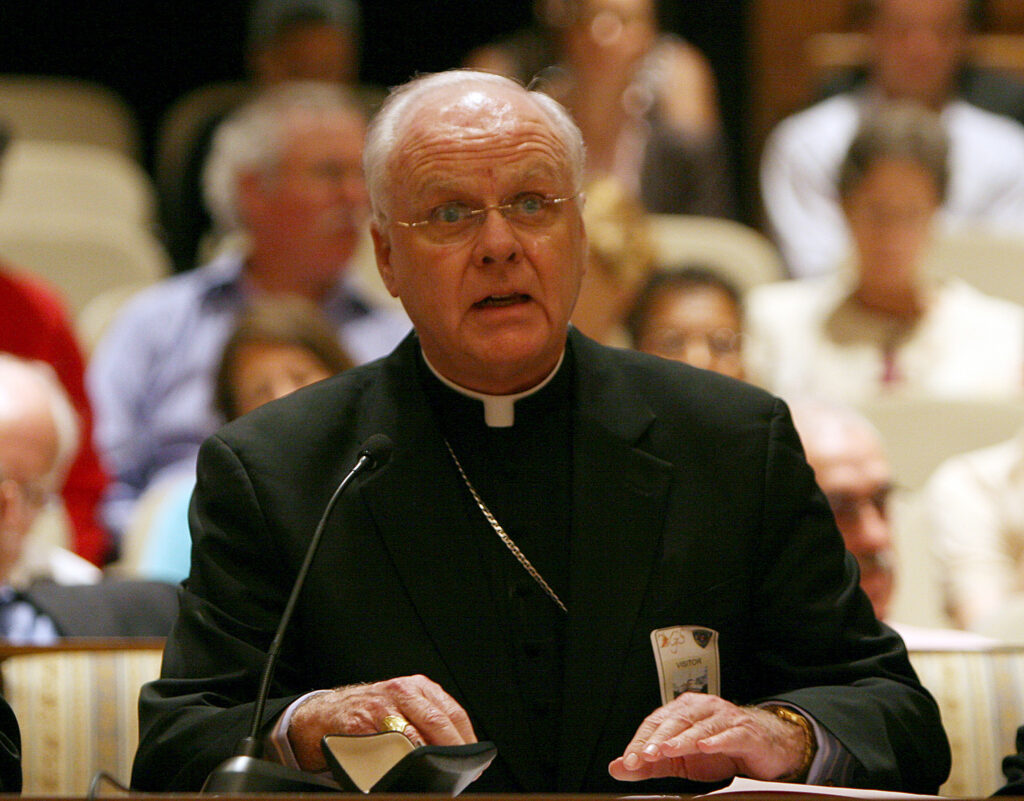
“Preserving the central role of the natural family unit has always been – and should continue to be – the reason why our government recognizes marriage as existing between one man and one woman,” the cardinal said.
The Maryland House of Delegates passed a bill Feb. 17 that would legalize same-sex marriage, and the bill is also likely to pass in the Senate.
Cardinal O’Brien called passage in the House of Delegates “a sad day for the State of Maryland and for Maryland families.”
“In one fleeting moment, the House of Delegates moved our state one step closer to undoing what civilizations surely have upheld for thousands of years, one step closer to violating a law deeply embedded in human nature, with tectonic repercussions for the future of family life and the common good of all,” he said.
Last year, the cardinal came to the defense of the Maryland DREAM Act – a law passed during the 2011 General Assembly that allows undocumented immigrants to receive in-state college tuition under certain circumstances.
In February, he pledged that he would not follow a directive by the Obama administration that would require Catholic universities, hospitals and other institutions to cover contraceptives, sterilization and abortion inducing drugs in their health care offerings.
Cardinal O’Brien sees respect for human dignity as the common thread running through each of his stances.
“No one in our country or our culture can ever look to the church and her teachings and think that their values, their welfare will be compromised for any reason,” he told the Catholic Review. “The church is in nobody’s pocket – whether we’re in Baltimore or the United States of America or the church universal in Rome.
Cardinal O’Brien called abortion “primary” because “once you deny the right to life, every other right thereafter is in jeopardy.”
“We must make room for priorities, and life is a priority,” he explained.
Cardinal O’Brien said his greatest disappointment is that many Catholics in public life are “half-stepping” and “compromising” on the fundamental issue of respect for life.
“We have a job to do in our country and our culture – forming Catholic leadership that will be respectful of life in the womb, be respectful of our brothers and sisters who are here from other countries, be aware of the need for the poor,” Cardinal O’Brien said.
Shaping education and parish life
Faced with a Catholic school system with struggling enrollment and increased expenses, Cardinal O’Brien implemented a consolidation plan in 2010 after a yearlong scrutiny of the educational system. Thirteen schools were closed and one was opened in an effort to stabilize the system after it had endured two years of average declines of 1,200 students.
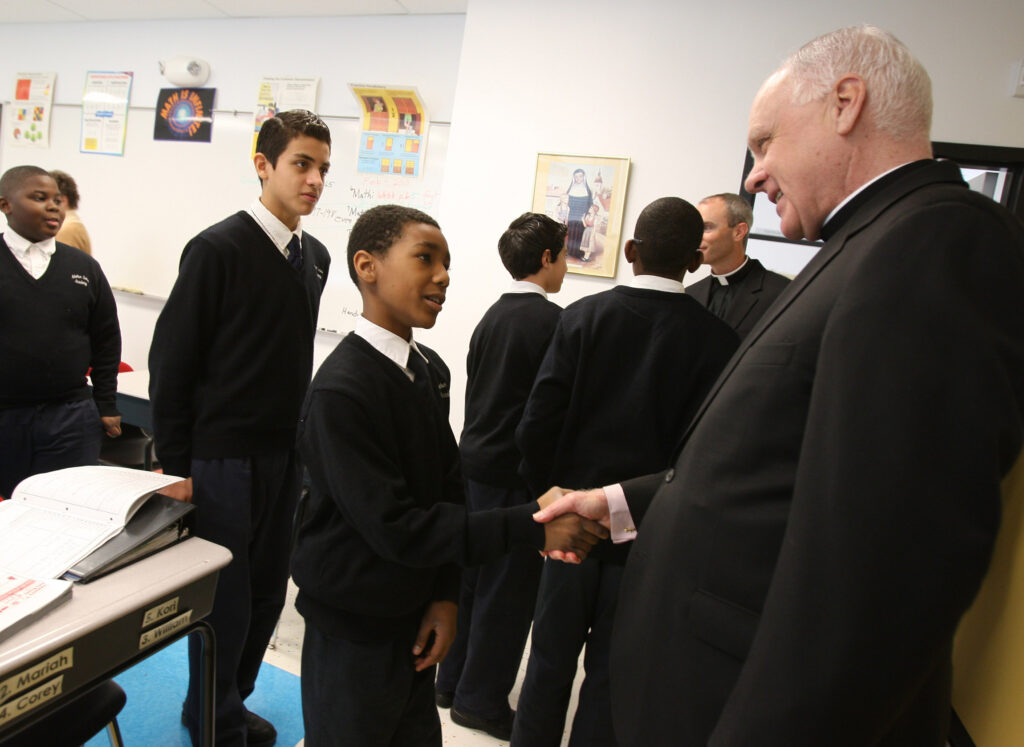
The archbishop commissioned a Blue Ribbon Panel of experts that made a series of recommendations that were incorporated into a strategic plan. A newly established 23-member Archdiocesan Catholic School Board, chaired by Cardinal O’Brien, met for the first time last year and was tasked with overseeing the plan’s implementation.
The cardinal acknowledged that closing schools was no easy task. Many were pained at the loss of institutions that had served the community for decades.
“I didn’t want to do it,” he said, “but I had to do it and I have no regrets in doing it.”
In the last year, Cardinal O’Brien enacted a parish-planning process throughout the archdiocese to deal with declining Mass attendance and fewer priests. In Western Maryland, he approved a plan to unite five Cumberland-area parishes into a single faith community known as Our Lady of the Mountains. He also approved a plan to close St. Michael in Fells Point and relocate its bilingual faith community to Sacred Heart of Jesus in Highlandtown.
The parish-planning process is taking input from people from across the archdiocese. With fewer priests and changing demographics, Cardinal O’Brien said there’s a need to think more cooperatively among parishes.
“It’s the faith, not the building,” he said. “It’s not parish lines, but it’s the sacraments – care and concern for each other and the wider community. Our sacramental life is weakening as a result of half-filled or third-filled churches.”
The cardinal said educational and social outreach is not as strong as it should be “if we are going it alone with a third of the resources we used to have.”
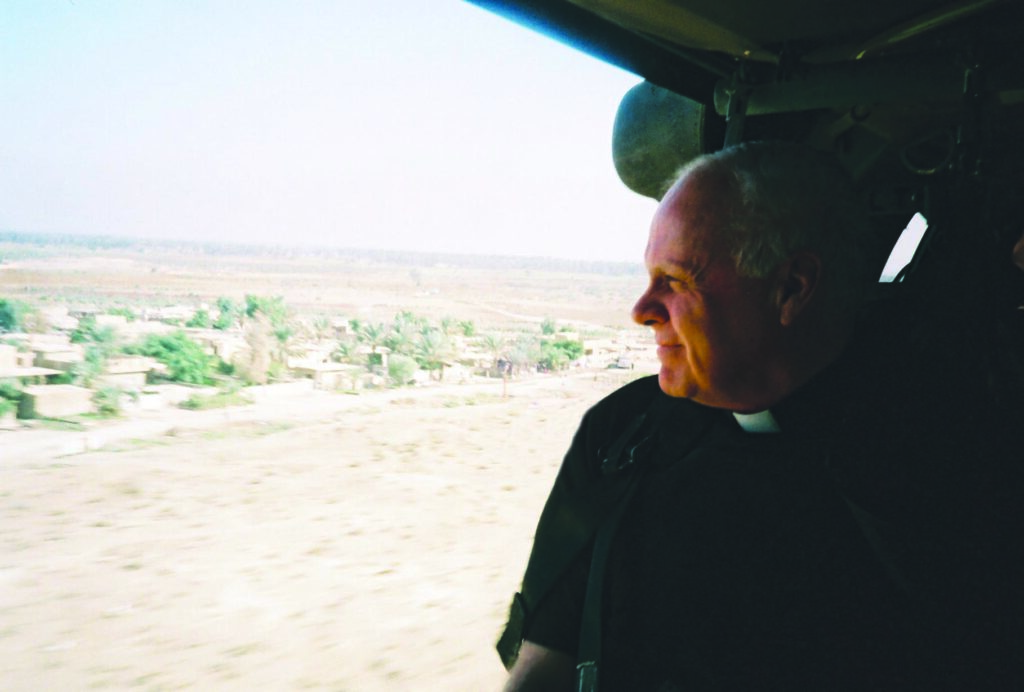
“We have to pool our resources and be much more efficient and effective in applying them,” he said.
“My successor will have to face some tough reactions,” he said, “but … we have to carry through if we’re going to have a healthy generation to come.”
Cardinal O’Brien said the priests of the Baltimore archdiocese have been his trusted advisors and friends. He respects them for their self-sacrifice and their commitment to ministry.
“I had some questions about the priests from Baltimore, because – at times, they can appear to be very independent,” he said. “And they are. But, I have found great response, great loyalty and honesty among them. You can talk to them and they will open up. Once we decide a course, they are on board. That is a great blessing.”
Building up the city of Baltimore was one of the areas where Cardinal O’Brien felt supported by his priests. They cooperated with anti-violence measures and participated in peace vigils. Yet, Cardinal O’Brien wished he could have attracted more commitment from leaders of other faith traditions in the city.
Fulfilling a promise at his 2007 installation Mass, the cardinal devoted much attention to raising awareness about religious vocations. He traveled across the archdiocese to attend informal dinners with young people who wanted to explore religious life. He encouraged parishes throughout the archdiocese to include prayers for vocations in their general intercessions at Mass and to pray for vocations in the presence of the Blessed Sacrament.
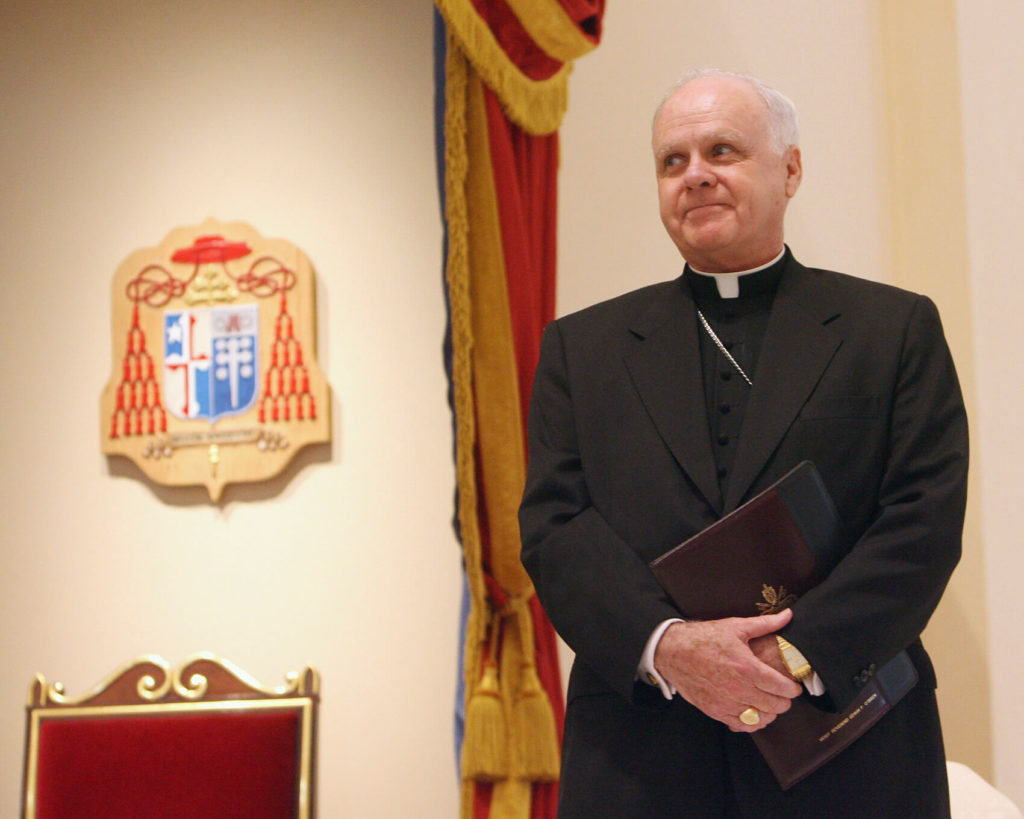
“I was hoping that by now, we’d have more than the 28 seminarians we do have,” he said. “It’s better than it was, but I do think there’s generosity out there that we’re not tapping. I hope our new archbishop is more effective at bringing that about.”
Cardinal O’Brien’s time in Baltimore was “a very high point in my priesthood,” he said.
“I love the military and I still do,” Archbishop O’Brien said of his previous assignment leading the Archdiocese for U.S. Military Services. “Ten years there made a deep impression.”
But, a territorial archdiocese such as Baltimore – rich in history and strong in its sense of Catholicity – was something special, he said.
“I remember the announcement (of my appointment to Baltimore),” he said, “how enthused everyone was – not because the name was O’Brien, but because there’s a great respect for the Catholic presence here.”
“We’ve done an awful lot in these four years,” he said. “I can assure you that what we have started will be carried through. And so, just keep your eye on the job and keep going forward because great progress is being made and it will come as a great gift to the incoming archbishop.”
Email George Matysek at gmatysek@CatholicReview.org.
Copyright © 2012 Catholic Review Media
